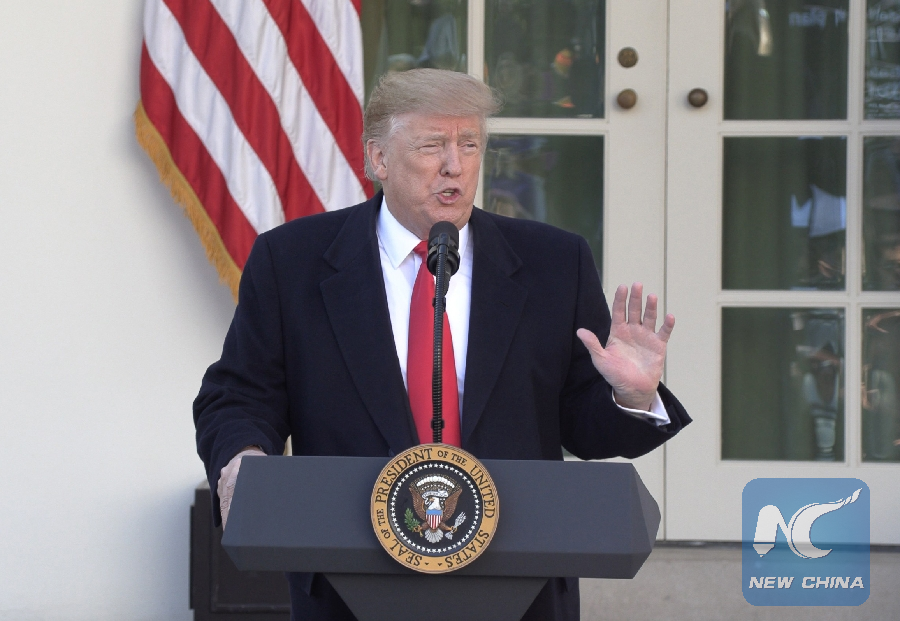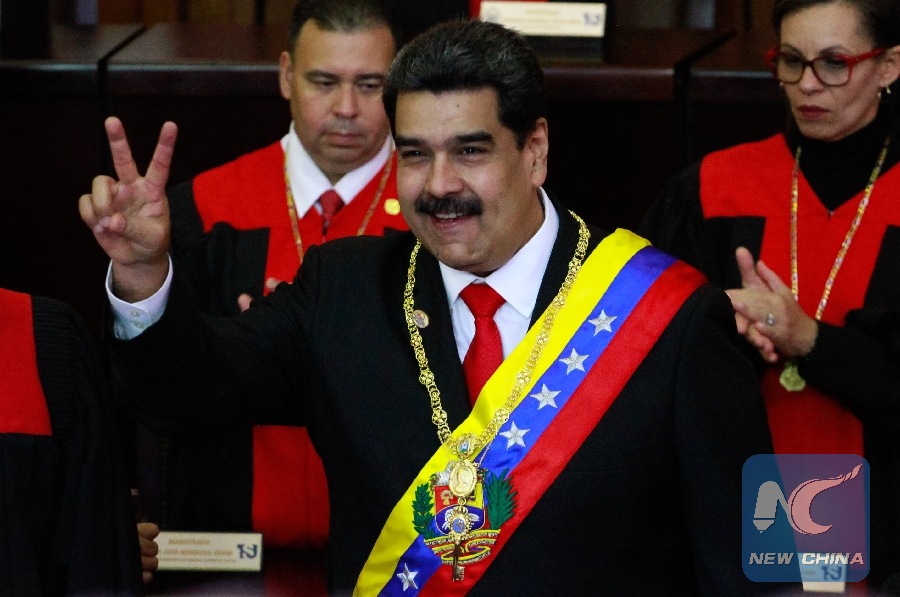
File Photo: U.S. President Donald Trump speaks at the White House in Washington D.C., the United States, on Jan. 25, 2019. (Xinhua/Hu Yousong)
WASHINGTON, Feb. 15 (Xinhua) -- The U.S. Department of the Treasury's Office of Foreign Assets Control (OFAC) on Friday announced sanctions on five Venezuelan officials, the latest move to pressure Venezuelan President Nicolas Maduro.
Among the five designated individuals, four are high-level officials of Venezuelan intelligence and security organizations, and the other is Manuel Quevedo, the president of Venezuela's state-owned oil company Petroleos de Venezuela, S.A., or PDVSA, the U.S. Treasury Department said in a statement.
All property and interests in property of those individuals and of entities they own in the United States would be blocked, and U.S. persons were generally prohibited from engaging in transactions with them.
Washington recently has stepped up economic and diplomatic pressure against the Maduro government.
The White House said Friday that President Donald Trump would give a speech on Venezuela in Miami, Florida on Monday, a move many believed aimed at supporting Venezuelan opposition leader Juan Guaido.
Earlier this week, Trump and visiting Colombian President Ivan Duque said they would cooperate on the Venezuela issue closely. Trump has remained ambiguous about the future policy regarding Venezuela. Asked if he was considering a military solution, Trump said there are "a number of different options. And we look at all options."
U.S. Special Representative for Venezuela Elliott Abrams, however, made it clear during a Congressional hearing on Wednesday that the United States would not be militarily involved in Venezuela.
The United States last month imposed sanctions on PDVSA, aiming to "prevent further diverting of Venezuela's assets by Maduro."
On Wednesday, Eliot Engel, the chairman of the House Foreign Affairs Committee, warned about the possible effects on the Venezuelan people of U.S. sanctions on PDVSA.

File Photo: Venezuelan President Nicolas Maduro (C) gestures during the presidential inauguration ceremony in Caracas, Venezuela, on Jan. 10, 2019. Nicolas Maduro was sworn in before the Supreme Court of Justice to begin a new six-year term. (Xinhua/Andrea Romero)
The Trump administration on Jan. 23 recognized Venezuelan opposition leader Juan Guaido as the nation's "interim president," a move that came days after Maduro was inaugurated for a second term as Venezuelan president.
In response to Washington's support for Guaido, Maduro announced he was severing "diplomatic and political" ties with the United States, ordering all the U.S. diplomatic and consular personnel to leave Venezuela in 72 hours.
Maduro won 2018 Venezuelan presidential election by garnering over 6 million votes, some 4 million more than his closest rival, and was inaugurated for a second term on Jan. 10.
Guaido, head of the Venezuelan National Assembly, declared himself interim president during an anti-government rally on Jan. 23, and was immediately recognized by the United States.
Maduro accused Washington of orchestrating a coup d'etat in order to install a puppet regime in Venezuela.

